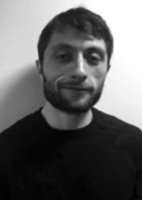-
1. Cover
-
2. Introduction
-
3. Contents
-
4. The power of crowdsourced R&D
-
5. AI addresses brain health
-
6. Sign-up for pharma news alerts
-
7. AstraZeneca takes on CVRM
-
8. Social media listening in R&D
-
9. Delivering change through better rare disease communications
-
10. Breadth vs. depth in R&D management
-
11. Podcast
-
12. Staying on the cutting edge of oncology
-
13. Improving research with NHS data
-
14. Subscribe to future Deep Dive issues
-
15. Contact the Deep Dive team

